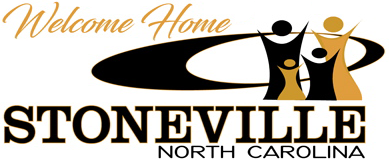Water & Sewer
Sign Up for Eye on Water and keep up with your usage and get notified of possible leaks.
Application for New Water-Sewer Service
Stoneville’s Public Works Department is committed to protecting the environment that we all share. Keeping the Town’s sewer system functioning properly requires constant inspection, cleaning, and maintenance. The department provides other essential services such as municipal building and landscape upkeep, park and cemetery upkeep, nuisance property cleanup, and limb and brush pickup.
Water Treatment
Stoneville purchases treated water from a corporation formed in 1988 by the towns of Stoneville and Mayodan. This system can presently supply 300,000 gallons of water per day, with the capability of increasing this amount as needed. Trained personnel are on staff to maintain the water booster station and two water towers.
Sewer Collection
Stoneville has approximately 20.54 miles of sewer lines, and 5 sewage pumping stations. Our average daily flow is approximately 150,000 gallons per day, and is treated by the Town of Mayodan’s Wastewater Treatment Facility. Wastewater collection and treatment are regulated by the North Carolina Department of Environmental and Natural Resources / Division of Water Quality.
It is very important that you, our citizens, immediately report any problems you may observe with the collection system, such as overflowing manholes, or visual alarms at pumping stations.
To report problems during our normal business hours of 8:00 AM to 5:00 PM, call 336-573-9393. The after hours number for Public Works is 336-932-9317.
Not All Sewer Problems Are The Town’s Responsibility
Some properties have two sewer clean out caps. One of these is generally a few feet away from the building ‘s foundation; the other is generally a few feet from the street. The Town ‘s liability for sewer issues begins on the street side of the property owner ‘s sewer clean out cap, which is the closest to the curb. The clean out cap is typically a four-inch pipe made of plastic or cast iron and is sealed with a screw-in plug made of plastic or brass. The cap usually rises as much as six inches from ground level, but may be flush with the ground.
Problem Prevention
Normal household wastewater will eventually build up deposits that clog sewer lines, but this is a slow process, and our regular maintenance program generally prevents major problems. However, there are some things that can build up quickly in a sewer line and cause major problems.
Please do not flush paper towels, feminine hygiene products, disposable diapers, cigarette butts, q-tips, dental floss, etc., down the toilet. All these items can and will cause sewer back-ups and possible overflows. Please dispose of these products in your solid waste and garbage (trash).
Please do not allow children to drop stones/rocks, sticks/twigs, etc. into manhole covers and drainage grates. The holes in the top of some manhole covers are for venting purposes that allow sewage to flow properly. Debris placed into the holes of manhole covers and drainage grates can fall into the sewer main and cause back-ups and overflows and can cause major damage to sewage pumps, which can be very costly to the Town.
Grease is probably the number one offender in stoppages of sewer lines. Grease, animal fat, and oils should never by poured down a drain, a garbage disposal, or flushed down the toilet. The aforementioned substances should be placed in an appropriate disposable container and discarded with your solid waste and garbage (trash).
Cracked and broken lines can slow or stop flow. This type of damage can be done by tree roots.
Be careful not to damage sewer clean out cap access points on your property with lawn mowers, etc.
Is your toilet leaking?
Here’s a simple, yet effective way to determine if you toilet is leaking in-between flushings.
- Take some food coloring, and place 2 or 3 drops into your tank; just enough to color your water.
- Leave the toilet alone for approx. 30-45 minutes.
- Check the bowl. Do you have color in your bowl? If NO, then you don’t have a leaking toilet. If YES, then you do have a leaking toilet, which will make your water bill much higher.
Remedy: Purchase a tank rebuild kit from your local hardware store and replace in your tank.
